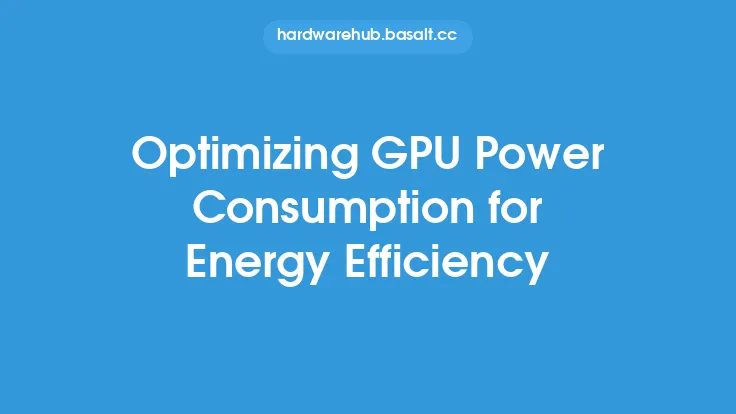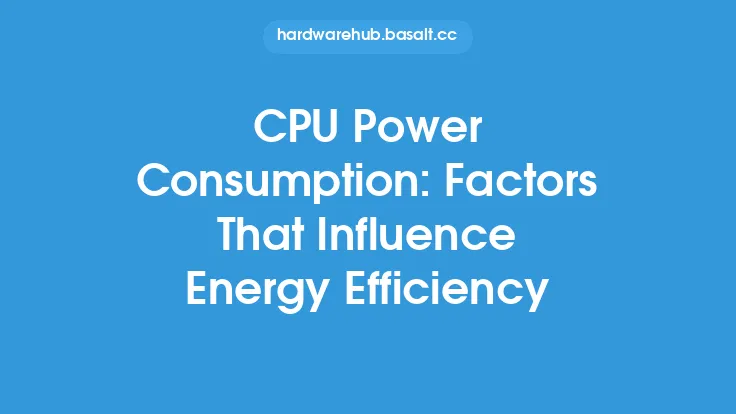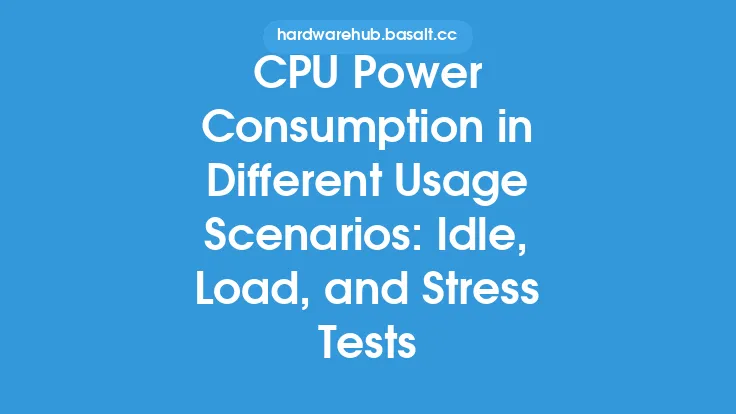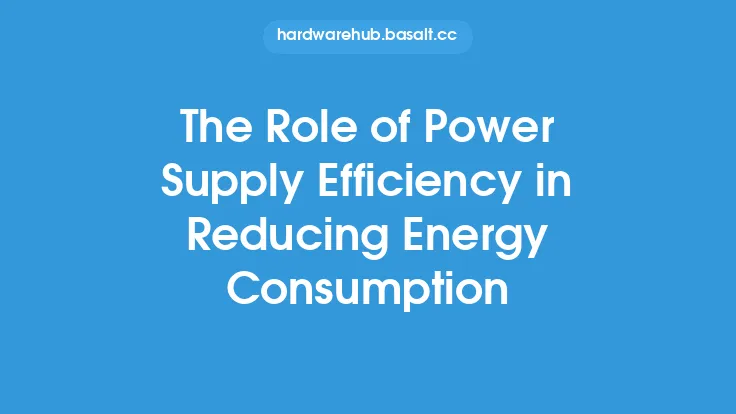The relationship between hardware upkeep and energy efficiency is a crucial aspect of maintaining devices and systems. As technology continues to advance, the importance of energy efficiency has become a significant concern for individuals, businesses, and organizations. One of the key factors that contribute to energy efficiency is the maintenance of hardware components. In this article, we will delve into the world of hardware upkeep and explore how it impacts power consumption.
Introduction to Hardware Upkeep and Energy Efficiency
Hardware upkeep refers to the regular maintenance and servicing of hardware components to ensure they function optimally. This includes tasks such as cleaning, updating firmware, and replacing worn-out parts. Energy efficiency, on the other hand, refers to the ability of a device or system to minimize power consumption while maintaining its performance. The connection between hardware upkeep and energy efficiency lies in the fact that well-maintained hardware components can operate more efficiently, resulting in reduced power consumption.
The Impact of Hardware Upkeep on Power Consumption
Regular hardware upkeep can significantly impact power consumption. For instance, a computer with a dusty fan can consume more power than one with a clean fan. This is because the dusty fan has to work harder to cool the system, resulting in increased power consumption. Similarly, a hard drive with fragmented files can consume more power than one with optimized files. By performing regular maintenance tasks such as cleaning and defragmenting, individuals can reduce power consumption and improve energy efficiency.
Technical Aspects of Hardware Upkeep and Energy Efficiency
From a technical standpoint, hardware upkeep can impact power consumption in several ways. For example, a device with outdated firmware can consume more power than one with updated firmware. This is because newer firmware versions often include energy-saving features and optimizations that reduce power consumption. Additionally, devices with malfunctioning or faulty components can consume more power than those with functioning components. For instance, a graphics card with a faulty fan can cause the system to consume more power, as the system tries to compensate for the faulty fan.
Components that Impact Energy Efficiency
Several hardware components can impact energy efficiency, including:
- CPUs: Central processing units (CPUs) are a significant contributor to power consumption. Regularly updating CPU firmware and ensuring proper cooling can help reduce power consumption.
- GPUs: Graphics processing units (GPUs) are another major contributor to power consumption. Ensuring proper cooling and updating GPU firmware can help reduce power consumption.
- RAM: Random access memory (RAM) can also impact energy efficiency. Using low-power RAM modules and ensuring proper cooling can help reduce power consumption.
- Storage Devices: Storage devices such as hard drives and solid-state drives (SSDs) can also impact energy efficiency. Using low-power storage devices and ensuring proper maintenance can help reduce power consumption.
Best Practices for Energy-Efficient Hardware Upkeep
To maintain energy-efficient hardware, individuals and organizations can follow several best practices, including:
- Regularly cleaning hardware components to ensure proper airflow and cooling.
- Updating firmware and software to ensure the latest energy-saving features and optimizations.
- Replacing worn-out or faulty components to prevent increased power consumption.
- Using power-saving features such as sleep mode and hibernation.
- Monitoring power consumption and adjusting hardware settings accordingly.
Measuring the Impact of Hardware Upkeep on Energy Efficiency
Measuring the impact of hardware upkeep on energy efficiency can be done using various tools and techniques. For example, individuals can use power meters to measure the power consumption of devices before and after maintenance. Additionally, software tools can be used to monitor power consumption and provide detailed reports on energy efficiency. By measuring the impact of hardware upkeep on energy efficiency, individuals and organizations can make informed decisions about maintenance schedules and energy-saving strategies.
Conclusion
In conclusion, hardware upkeep plays a significant role in energy efficiency. By performing regular maintenance tasks and ensuring proper upkeep, individuals and organizations can reduce power consumption and improve energy efficiency. Understanding the technical aspects of hardware upkeep and energy efficiency can help individuals make informed decisions about maintenance schedules and energy-saving strategies. By following best practices and measuring the impact of hardware upkeep on energy efficiency, individuals and organizations can contribute to a more energy-efficient and sustainable future.





